As software development continues to advance at a rapid pace, the demand for efficient and reliable operating systems tailored to the needs of DevOps professionals has become increasingly prominent. Emerging from this landscape are two innovative contenders, NixOS and GuixSD, which have garnered significant attention within the tech community. These Linux distributions are revolutionizing the way DevOps teams approach system configuration and deployment, boasting unique features and philosophies that challenge traditional norms.
Steering away from conventional package management solutions, NixOS and GuixSD provide a new paradigm in software deployment. These distributions focus on functional package management, a concept that emphasizes immutability and reproducibility. By treating each package as an isolated entity, developers gain precise control over the dependencies and versions required, ensuring consistency across various environments.
Both NixOS and GuixSD have embraced a declarative approach to system configuration. Instead of relying on manual tweaks and modifications, these distributions allow users to define their desired system state in a declarative language. This powerful methodology guarantees reproducibility, simplifies system administration, and enhances collaboration within DevOps teams. A single configuration file can capture the essence of an entire infrastructure, making it easier to manage and replicate complex setups.
Beyond their shared ideals, NixOS and GuixSD diverge in certain aspects. NixOS, for instance, leverages a pure functional programming language, Nix. This language's expression-oriented nature enables declarative package management, making it possible to express an entire system as a single, composable entity. GuixSD, on the other hand, embraces GNU Guile, a Scheme-based programming language, allowing for extensive customization and integration capabilities.
In conclusion, NixOS and GuixSD present exciting prospects for the future of Linux distributions in the realm of DevOps. Their disruptive approaches to package management and system configuration offer increased control, reproducibility, and scalability. As technology continues to evolve, these innovative distributions pave the way for a more efficient and streamlined DevOps experience, empowering developers to focus on their core tasks without being hindered by system complexities.
The Ascendance of NixOS and GuixSD in the DevOps Community
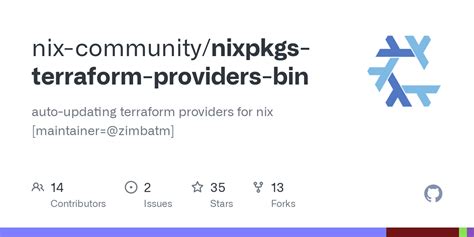
In the rapidly evolving landscape of DevOps, a new wave of Linux distributions has been gaining momentum, offering innovative approaches to system configuration and package management. This article explores the surge in popularity and relevance of NixOS and GuixSD, two cutting-edge distributions that have emerged as compelling options for DevOps professionals.
These dynamic platforms provide distinct solutions to the challenges faced by modern software development and deployment. With their unique features and approaches, NixOS and GuixSD are reshaping the way DevOps teams build and manage their infrastructure.
What sets NixOS and GuixSD apart is their advanced package management systems, which provide unparalleled reproducibility and deterministic deployment. By employing functional package management principles, these distributions ensure that software is built and deployed in a consistent and predictable manner, mitigating compatibility issues and reducing system failures.
Furthermore, NixOS and GuixSD offer declarative configuration management, enabling infrastructure to be defined as code. This paradigm shift allows DevOps teams to version control their system configurations, easily reproduce environments, and efficiently manage complex infrastructures with reduced complexity and human error.
Both NixOS and GuixSD foster a declarative and immutable infrastructure approach, where system state changes are treated as atomic operations. This ensures a high level of reliability, allows for easy rollbacks, and guarantees that software deployments are consistent and reproducible across different environments.
The rise of NixOS and GuixSD in the DevOps community is driven by their clear benefits in terms of maintainability, scalability, and reliability. Although these distributions might still be considered niche, their maturing ecosystems and growing communities indicate a promising future for their adoption.
As DevOps professionals strive for more efficient and reliable infrastructure management, NixOS and GuixSD provide an alternative path that embraces the principles of reproducibility, declarative configuration, and immutable infrastructure. It is this unique combination of innovative features and community-driven development that positions NixOS and GuixSD as the rising stars in the world of Linux distributions for DevOps.
Exploring the Unique Advantages of NixOS in DevOps
Within the realm of DevOps, it is crucial to stay ahead of the curve by harnessing innovative Linux distributions that offer unique features and capabilities. One such distribution that stands out is NixOS, which is specifically crafted to cater to the needs of DevOps professionals. In this section, we will delve into the distinctive strengths and benefits that NixOS brings to the table, enabling developers and operations teams to streamline their workflows and drive efficiency.
Unparalleled Configuration Management: NixOS brings a groundbreaking approach to configuration management, departing from the traditional imperative style and embracing a declarative paradigm. This means that instead of manually configuring each aspect of the system, NixOS allows for defining the desired state of the entire system in a single configuration file. This lightweight and reproducible configuration model ensures consistent environments across different deployments and simplifies the process of managing complex infrastructure.
Atomic Upgrades and Rollbacks: NixOS introduces the concept of atomic upgrades and rollbacks, providing an efficient and reliable way to handle system updates. By treating the entire operating system as a single entity, NixOS enables seamless transitions between different system states. This functionality becomes incredibly valuable for DevOps teams, allowing them to easily experiment with new software versions, test configurations, and swiftly revert to a stable state in case of issues or failures.
Package Management Reinvented: Nix, the package manager at the core of NixOS, revolutionizes the way software is managed and controlled. Unlike traditional package managers, Nix adopts a purely functional approach, guaranteeing that each package is installed in isolation, ensuring no conflicts or interference between different software dependencies. This remarkable feature enables DevOps professionals to effortlessly create isolated development environments, reproduce production setups, and maintain consistent package versions across multiple stages of the deployment pipeline.
Rigorous Testing and System Rollback: NixOS further enhances its reliability by integrating robust testing and rollback mechanisms into its core functionality. The ability to create test-driven infrastructures greatly reduces the risk of unexpected errors or failures. Moreover, if an issue arises, NixOS enables quick and hassle-free rollback to a known working system configuration. These features are invaluable in the context of DevOps, ensuring stability and minimizing downtime throughout the software development lifecycle.
In conclusion, NixOS emerges as a trailblazing Linux distribution that presents DevOps professionals with a distinct set of advantages. Its declarative configuration management, atomic upgrades and rollbacks, innovative package management system, as well as rigorous testing capabilities, empower teams to effortlessly orchestrate complex infrastructures and streamline their DevOps workflows. With NixOS, the future of Linux distributions for DevOps is indeed promising and holds immense potential.
Understanding the Innovation in GuixSD's Approach to Distribution Management
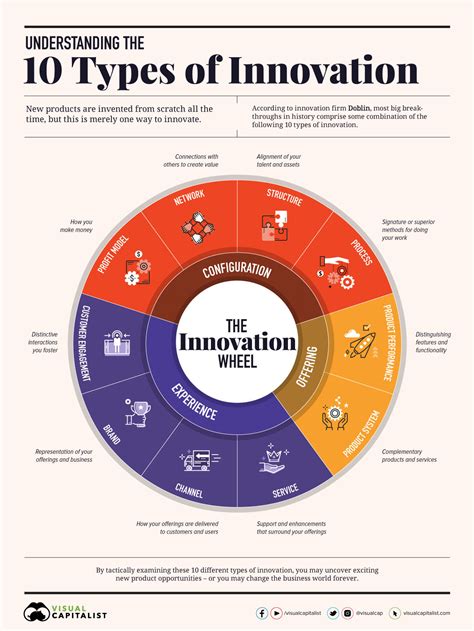
GuixSD, with its groundbreaking approach to Linux distributions, offers a unique and forward-thinking solution to the challenges faced by DevOps professionals. This section aims to delve into the underlying principles and ideas behind GuixSD, shedding light on its innovative features and methodologies.
At the core of GuixSD lies a profound understanding of the need for flexible and reproducible software environments, ensuring consistency and reliability across different platforms. By employing a functional package management system, GuixSD allows DevOps teams to define software configurations declaratively, treating them as immutable entities that can be effortlessly shared and reproduced.
The key aspect that sets GuixSD apart from other distributions is its emphasis on functional purity. Rather than relying on traditional package managers that often result in a tangled web of dependencies, GuixSD leverages a purely functional approach, treating packages as isolated entities that do not interfere with each other or the core system. This not only leads to better reproducibility but also facilitates easy rollback and upgrades without the fear of breaking dependencies.
Another striking aspect of GuixSD is its commitment to free software principles. It relies on a robust build system that prioritizes source code transparency and reproducibility, allowing users to build their entire system from source code if desired. Furthermore, GuixSD actively promotes the use of free software and adheres to strict licensing standards, providing users with greater control over their software environment and enabling them to maintain compliance with license requirements.
GuixSD also introduces the concept of "guix containers," which offer lightweight, isolated environments for running applications with minimal overhead. This innovative approach empowers DevOps professionals to encapsulate their applications, dependencies, and configurations within a controlled environment, enhancing scalability and minimizing potential conflicts.
In conclusion, GuixSD's innovative approach to Linux distributions presents a compelling solution for DevOps professionals seeking more reliable, consistent, and reproducible software environments. By embracing functional purity, free software principles, and the concept of guix containers, GuixSD has the potential to shape the future of Linux distributions in the realm of DevOps.
Advantages and Challenges of Adopting NixOS and GuixSD for DevOps
Exploring the potential benefits and challenges of utilizing alternative Linux distributions - NixOS and GuixSD - for DevOps environments can provide valuable insights into the future of software development and system administration.
One of the notable advantages of NixOS and GuixSD is their unique approach towards package management. These distributions employ a declarative package management system, allowing for precise and reproducible software installations. Instead of relying on traditional package managers, NixOS and GuixSD make use of functional package managers, which treat software packages as self-contained units with all their dependencies included. The ability to precisely specify and manage dependencies can greatly simplify the process of deploying and scaling applications in a DevOps environment.
Additionally, NixOS and GuixSD offer a powerful mechanism for system configuration management. Through declarative and composable configurations, it becomes easier to manage complex infrastructure setups efficiently. With the help of functional configuration management tools, such as Nix and GNU Guix, administrators can define and reuse entire system configurations or specific components, enabling versioning, rollback, and reproducibility.
Another advantage of utilizing these distributions is the ability to create isolated and reproducible development environments. By encapsulating all dependencies within the system, DevOps teams can ensure that the development environment remains consistent across different stages, from local development to production deployment. This approach eliminates many environment-related issues, enables collaborative work, and facilitates continuous integration and deployment practices.
However, it is important to consider the challenges that might arise when adopting NixOS and GuixSD in a DevOps context. First and foremost is the learning curve associated with these distributions. As they deviate from the traditional package management systems, developers and system administrators might need to invest time in understanding and adapting to the new paradigms and tools introduced by NixOS and GuixSD.
Furthermore, the availability and compatibility of packages in NixOS and GuixSD repositories might differ from those found in more established distributions. While the extensive package collections of mainstream distributions are usually more comprehensive, care needs to be taken when verifying the availability of specific software packages and dependencies in the chosen alternative distribution.
Lastly, the adoption of NixOS and GuixSD might require additional efforts in terms of community support and ecosystem maturity. Although both distributions have active communities and ongoing development, it is essential to evaluate the community support, documentation, and overall ecosystem to ensure a sustainable and reliable foundation for DevOps practices.
Revolutionizing Configuration Management
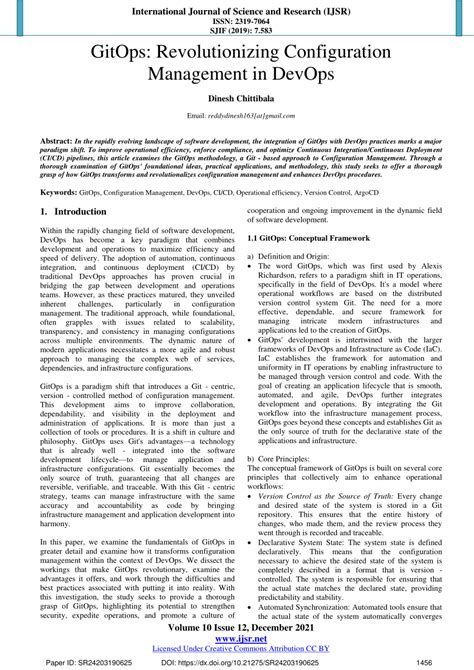
As the landscape of technology continues to evolve, the way we manage and configure systems has become a critical aspect of any successful DevOps practice. In this era of constant change and innovation, NixOS and GuixSD stand out as game-changers in the realm of configuration management.
These cutting-edge Linux distributions are transforming the traditional approach to system configuration through their unique and powerful features. By providing declarative and reproducible methods for managing software environments, NixOS and GuixSD offer DevOps teams unprecedented control and flexibility.
Declarative Configuration: NixOS and GuixSD depart from the conventional imperative approach to configuration management. Instead, they embrace a declarative methodology, where system configurations are specified in a declarative language. This enables precise and consistent changes to the system state, promoting scalability and reproducibility.
Reproducible Environments: One of the key challenges in configuration management is ensuring consistent and reproducible software environments across different development stages. NixOS and GuixSD address this by employing purely functional package management systems. These distributions utilize innovative dependency resolution mechanisms and immutable deployment models, ensuring that every software environment is precisely reproduced, regardless of the target system.
Rollback and Atomic Upgrades: Traditional configuration management often struggles with the potential for system-wide failures caused by package upgrades or configuration changes. NixOS and GuixSD mitigate these risks by providing rollback capabilities and atomic upgrades. This means that any changes to the system can be easily reversed, minimizing the impact of errors or unexpected behavior during the configuration process.
Community-Driven Ecosystem: The success of any Linux distribution relies heavily on its community and the availability of reliable and up-to-date software packages. NixOS and GuixSD have vibrant communities that actively contribute to the development and maintenance of package repositories, ensuring a vast selection of software that can be effortlessly managed on these distributions.
In conclusion, NixOS and GuixSD are revolutionizing configuration management in the DevOps landscape. Their declarative approach, reproducibility features, rollback capabilities, and community-driven ecosystems make them powerful tools for DevOps teams striving for efficient and consistent system management.
Integrating NixOS and GuixSD into your DevOps workflow
Enhancing your DevOps workflow with innovative Linux distributions is crucial for efficiently managing software development and deployment processes. This section explores the potential benefits of integrating alternative systems like NixOS and GuixSD.
Enhanced Package Management:
- Streamline your DevOps workflow by leveraging the advanced package management capabilities offered by NixOS and GuixSD.
- Effortlessly manage dependencies and avoid version conflicts with the declarative nature of package management provided by these distributions.
- Utilize their unique features, such as atomic upgrades and rollbacks, to ensure consistent and reliable deployments.
Reproducible Environments:
- Ensure reproducibility in your development, test, and production environments with the functional package management approach offered by NixOS and GuixSD.
- Define your infrastructure as code using declarative configuration files, enabling easy replication of environments across different stages of the development lifecycle.
- Simplify collaboration among team members by providing a shared and reproducible platform for development and testing.
Immutable Infrastructure:
- Embrace the concept of immutable infrastructure by utilizing NixOS and GuixSD's ability to treat your entire system configuration as code.
- Enjoy the benefits of simplified deployments and increased system stability through the immutability of your infrastructure.
- Quickly and reliably roll out system changes by leveraging built-in versioning and rollback features.
By integrating NixOS and GuixSD into your DevOps workflow, you can revolutionize your software development practices and enhance the agility, reproducibility, and reliability of your deployments.
Comparing NixOS, GuixSD, and traditional Linux distributions in DevOps
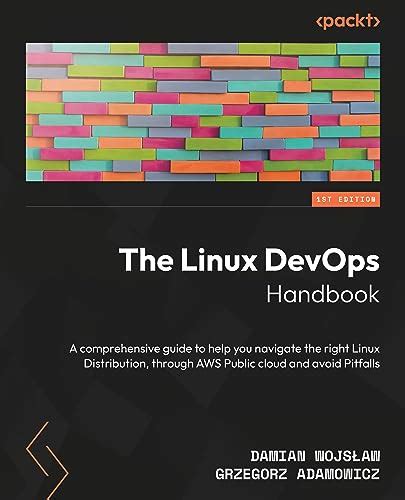
In the realm of DevOps, there is an emerging trend towards exploring alternative Linux distributions that offer unique approaches to software management and configuration. This article aims to compare and contrast NixOS, GuixSD, and traditional Linux distributions, highlighting their differences and potential benefits for DevOps professionals.
Software management:
One key aspect to consider when evaluating a Linux distribution for DevOps is its approach to software management. NixOS and GuixSD both follow a declarative model, where the system state is defined by a specification file rather than ad-hoc configurations. This enables reproducibility and atomic upgrades, making it easier to manage and rollback system changes. Traditional Linux distributions, on the other hand, typically rely on package managers and manual configuration, which can be less efficient and more prone to inconsistencies.
Immutable infrastructure:
Another important factor in DevOps is the concept of immutable infrastructure, where servers and deployments are treated as disposable entities rather than being constantly updated and modified. NixOS and GuixSD excel in this area by providing atomic upgrades and rollbacks, ensuring that any changes made to the system are isolated and reversible. Traditional Linux distributions often require more manual intervention and can lead to more downtime during system updates.
Dependency management:
Ensuring the compatibility and stability of software dependencies is critical in DevOps. NixOS and GuixSD utilize functional package management, where each package is built in isolation with its own dependencies. This approach allows for better version management and eliminates conflicts between different software components. Traditional Linux distributions typically rely on shared libraries and package managers, which can sometimes result in version conflicts and dependency issues.
Customizability and extensibility:
Both NixOS and GuixSD provide powerful mechanisms for customizing and extending the system configuration. NixOS employs a declarative language called NixOS modules, which allows users to easily define and manage system configurations. GuixSD leverages the GNU Guix package manager, providing a rich set of package definitions and user-defined package channels. Traditional Linux distributions often require manual configuration edits and lack the same level of flexibility and ease of use.
Conclusion:
In the rapidly evolving landscape of DevOps, NixOS, GuixSD, and traditional Linux distributions each have their own strengths and considerations. While traditional Linux distributions maintain a large user base and extensive support, NixOS and GuixSD offer unique advantages in terms of software management, immutability, dependency management, and customizability. DevOps professionals should carefully evaluate their specific requirements and preferences when choosing a Linux distribution, considering the potential benefits these alternative options bring to the table.
Real-world Examples of NixOS and GuixSD in Action: Case Studies
In this section, we will explore practical applications of two innovative Linux distributions, NixOS and GuixSD, within the realm of DevOps. By examining real-world case studies, we can gain insights into the potential benefits and advantages these distributions offer for managing and deploying software systems.
1. Streamlining Software Deployment in a Large-Scale Environment
- Implementing NixOS for a multinational tech company's cloud infrastructure.
- Efficiently managing complex software configurations using Nix expressions.
- Using NixOps to automate the deployment of a distributed system across multiple servers.
- Facilitating reproducibility and traceability in software deployments.
2. Reproducible Environments for Research and Development
- Utilizing GuixSD in an academic research institution for reproducible computational experiments.
- Capturing the complete software environment with GNU Guix's declarative package management.
- Sharing and preserving research workflows by defining projects as self-contained Guix environments.
- Exploring the benefits of functional package management for long-term scientific reproducibility.
3. Infrastructure-as-Code for Continuous Integration and Deployment
- Adopting NixOS and GuixSD in a software development company for streamlined CI/CD workflows.
- Defining infrastructure configurations as code using a declarative approach.
- Integrating with popular CI/CD tools like Jenkins, GitLab CI/CD, or CircleCI.
- Enabling efficient and reliable software releases and deployments with atomic upgrades and rollbacks.
These case studies showcase how NixOS and GuixSD revolutionize traditional Linux distributions in the context of DevOps. By prioritizing reproducibility, declarative package management, and infrastructure-as-code principles, these distributions offer a promising glimpse into the future of software deployment and system management.
The Promising Future of NixOS and GuixSD: Revolutionary Linux Solutions for DevOps
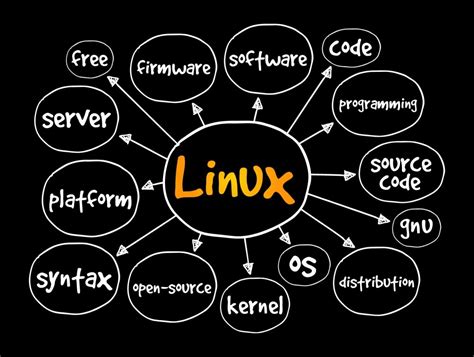
In the ever-evolving world of DevOps, the realm of Linux distributions is witnessing a potential paradigm shift. It is becoming increasingly evident that NixOS and GuixSD have emerged as exceptional contenders, reshaping the landscape of Linux distributions for DevOps professionals.
These visionary operating systems, often referred to as "immutable" or "declarative," offer an innovative approach to software deployment and system configuration. By challenging traditional package management systems and adopting functional package management, NixOS and GuixSD present a compelling alternative for modern-day DevOps teams.
With a primary focus on reproducibility, scalability, and system reliability, these remarkable distributions prioritize the creation of homogeneous system environments. By leveraging advanced dependency management and immutable system deployments, NixOS and GuixSD instill confidence in DevOps practitioners, ensuring consistent and predictable computing experiences across diverse production environments.
Another noteworthy feature of NixOS and GuixSD is their dedication to enhancing the productivity and ease of use for developers and system administrators. Through leveraging a declarative configuration model and providing robust rollback capabilities, these distributions empower DevOps teams to explore new possibilities without the fear of system instability or irreparable consequences.
Furthermore, embracing a functional programming approach, NixOS and GuixSD enable users to declaratively define, compose, and reproduce software stacks with unparalleled precision. By representing software as purely functional units, independent from the host operating system, these distributions eliminate compatibility issues and enable seamless collaborations among developers, system administrators, and other stakeholders within the DevOps ecosystem.
In conclusion, the future outlook for NixOS and GuixSD as Linux distributions for DevOps appears exceptionally promising. Their fresh approach towards system configuration, package management, and overall development workflows presents a remarkable opportunity for DevOps teams to revolutionize their operational practices. As these dynamic distributions continue to gain traction within the technological landscape, their potential to become the go-to solutions for DevOps professionals cannot be overlooked.
Nix flakes explained
Nix flakes explained by Vimjoyer 55,408 views 10 months ago 7 minutes, 22 seconds
5 SHOCKING Reasons You Should AVOID NixOS! 😲 | #3 Will Surprise You!
5 SHOCKING Reasons You Should AVOID NixOS! 😲 | #3 Will Surprise You! by Gosh-Its-Arch 10,722 views 6 months ago 6 minutes, 58 seconds
FAQ
What are NixOS and GuixSD?
NixOS and GuixSD are two Linux distributions that focus on declarative package management and reproducibility. They both use functional package managers, Nix and Guix respectively, which provide unique features for managing software dependencies.
What makes NixOS and GuixSD suitable for DevOps?
NixOS and GuixSD are suitable for DevOps due to their emphasis on reproducibility and declarative configuration. This means that software and system configurations are described in a consistent and predictable manner, making it easier to manage and deploy infrastructure as code.
Are NixOS and GuixSD gaining popularity among DevOps professionals?
Yes, NixOS and GuixSD are gaining popularity among DevOps professionals. The demand for reproducibility and immutable infrastructure is increasing, and these distributions provide the necessary tools and workflows to meet these requirements.
What are some advantages of using NixOS and GuixSD over traditional Linux distributions?
Some advantages of using NixOS and GuixSD over traditional Linux distributions include atomic upgrades and rollbacks, reliable and reproducible builds, easy environment management, and the ability to have multiple versions of the same software coexisting on a system.
Are there any downsides or challenges when using NixOS and GuixSD?
Using NixOS and GuixSD may have a learning curve for those who are used to more traditional package managers. The functional package management paradigm requires a shift in mindset and understanding of how software dependencies are resolved and managed. Additionally, the availability of pre-built packages may be limited compared to more mainstream distributions.
What are NixOS and GuixSD?
NixOS and GuixSD are both unique, functional Linux distributions that are gaining popularity in the DevOps community. They are both based on the Nix package manager and focus on providing declarative deployment and configuration management.
How do NixOS and GuixSD differ from traditional Linux distributions?
NixOS and GuixSD differ from traditional Linux distributions in their approach to package management. Instead of relying on global package installations and mutable system state, NixOS and GuixSD use a purely functional approach. They allow for reproducible and isolated environments, making it easier to manage software dependencies and system configurations.




